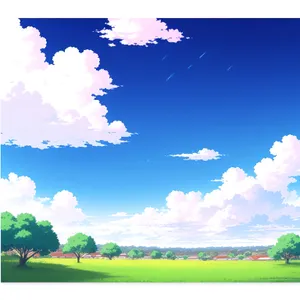Weather Pictures, Images and Stock photos
Weather, an ever-changing tapestry of atmospheric phenomena, has captivated human imagination for centuries. From the awe-inspiring beauty of a sunrise to the ominous clouds heralding a storm, the visual appeal of weather is undeniable. In the modern era, technology has allowed us to capture these fleeting moments in the form of weather pictures, providing both scientific insights and artistic inspiration. This article explores the dual nature of weather images, delving into their scientific effectiveness and artistic allure.
The Scientific Lens:
Weather images play a pivotal role in meteorology, the scientific study of the Earth's atmosphere. Satellite imagery, radar systems, and ground-based sensors supply a comprehensive view of the atmosphere's dynamic behavior. Pictures of rain, for instance, offer a bird's-eye view of cloud patterns, atmospheric circulation, and even phenomena like hurricanes and typhoons. These visuals are indispensable for meteorologists in tracking and predicting weather patterns, enabling timely and accurate weather forecasts.
Radar systems, on the other hand, supply a closer look at precipitation patterns. By bouncing radio waves off raindrops or snowflakes, meteorologists can create detailed pictures of weather of precipitation intensity and movement. This technology is crucial for monitoring severe weather events like thunderstorms and blizzards, helping authorities issue timely warnings to mitigate potential risks.
Ground-based weather stations contribute valuable data through instruments that measure temperature, humidity, wind speed, and other atmospheric variables. Combining these measurements with satellite and radar imagery allows meteorologists to create a comprehensive picture of the Earth's weather systems.
The Artistic Palette:
While weather images serve a vital scientific purpose, they also offer a stunning display of nature's artistic prowess. The ever-changing sky, with its kaleidoscope of colors and textures, serves as an endless muse for photographers, artists, and weather enthusiasts alike.
Sunsets and sunrises, bathed in hues of orange, pink, and purple, create breathtaking silhouettes against the horizon. Cloud formations, ranging from fluffy cumulus to towering cumulonimbus, contribute to the dramatic narrative of the sky. Lightning storms illuminate the night, painting the heavens with electrifying flashes.
Photographers and artists often seek out unique perspectives to capture the essence of weather. Time-lapse photography, for instance, allows the documentation of cloud movements, revealing the mesmerizing dance of the atmosphere. Storm chasers brave the elements to capture the raw power of tornadoes and hurricanes, providing both a visual spectacle and valuable data for meteorological research.
Artistic interpretations of weather can be found in various mediums, from traditional paintings to digital art and even installations. The play of light and shadow, the interplay of colors, and the sheer drama of weather phenomena inspire creations that evoke a deep appreciation for the natural world.
The Intersection of Science and Art:
The synergy between science and art in the realm of weather images is evident in various projects and initiatives. Science communication efforts often leverage visually compelling picture of rain to convey complex meteorological concepts to the general public. By presenting weather data in an accessible and aesthetically pleasing manner, scientists can enhance public understanding and awareness of climate-related issues.
In recent years, advancements in technology have enabled the creation of immersive visualizations of weather data. Virtual reality experiences, interactive maps, and augmented reality applications allow users to investigate and interact with weather patterns in unprecedented ways. These tools not only facilitate scientific research but also serve as powerful educational resources, fostering a greater connection between people and the natural world.
Additionally, collaborations between scientists and artists have given rise to innovative projects that bridge the gap between data analysis and creative expression. Climate change art installations, for example, use weather-related data to create impactful displays that communicate the urgency of environmental issues.
Conclusion:
Weather pics, whether captured for scientific research or artistic expression, offer a multifaceted lens through which we can view the wonders of the natural world. As technology continues to advance, the intersection of science and art in the realm of weather imagery will likely yield even more captivating insights and visually stunning creations. Whether helping us understand the intricacies of atmospheric processes or simply providing moments of awe and inspiration, hurricane images remain a testament to the beauty and complexity of our planet's dynamic climate.
What are weather images?
Images of weather refer to visual representations of atmospheric conditions and phenomena captured through various means, including photography, satellite imaging, radar systems, and other technologies. These weather photos supply insights into weather patterns, cloud formations, precipitation, and other atmospheric events.
What are the most popular weather images?
The popularity of pictures of the weather often depends on personal preferences and regional interests. However, certain types of weather images tend to capture widespread attention. These include dramatic sunsets and sunrises, storm clouds, lightning strikes, rainbows, and aerial views of weather systems such as hurricanes or typhoons.
How to find high-quality weather photos?
Finding high-quality weather photos involves exploring reputable sources that curate and share such picture of weather. Some recommended approaches include:
Weather Websites: Meteorological websites and organizations often feature galleries of weather pics.
Photography Platforms: Websites like Flickr, Unsplash, and Shutterstock host a vast collection of user-submitted or professional weather photos.
Government Agencies: National meteorological agencies often supply access to weather-related imagery.
Social Media: Platforms like Instagram and Twitter have communities dedicated to weather photography, where enthusiasts and professionals share their work.
Weather Apps: Some weather applications feature user-submitted photos or supply links to image galleries.
What makes weather photos interesting?
Weather photos are interesting for various reasons:
Dramatic Visuals: The emotional and ever-changing nature of weather produces visually striking scenes, from vibrant sunsets to turbulent storms.
Educational Value: Weather images contribute to our discernment of meteorology, showcasing different atmospheric phenomena and weather patterns.
Artistic Expression: Photographers and artists often capture the beauty of weather in a creative and aesthetically pleasing way, turning atmospheric events into works of art.
Documenting Nature's Power: Images of extreme weather, such as tornadoes or hurricanes, highlight the raw power of nature and its impact on the environment.
How to download weather images for free?
Downloading weather images for free can be done through various online platforms that offer royalty-free or Creative Commons-licensed content. Here's a step-by-step guide:
Use Stock Photo Websites: Platforms like Unsplash, Pexels, and Pixabay supply high-quality images for free download.
Check Government Websites: National meteorological agencies often share weather-related imagery for public use.
Explore Creative Commons Repositories: Websites like Wikimedia Commons host a wide range of images under Creative Commons licenses, allowing free use with proper attribution.
Utilize Social Media: Some photographers and weather enthusiasts share their work on platforms like Flickr or Instagram, allowing users to download images for personal use.













































